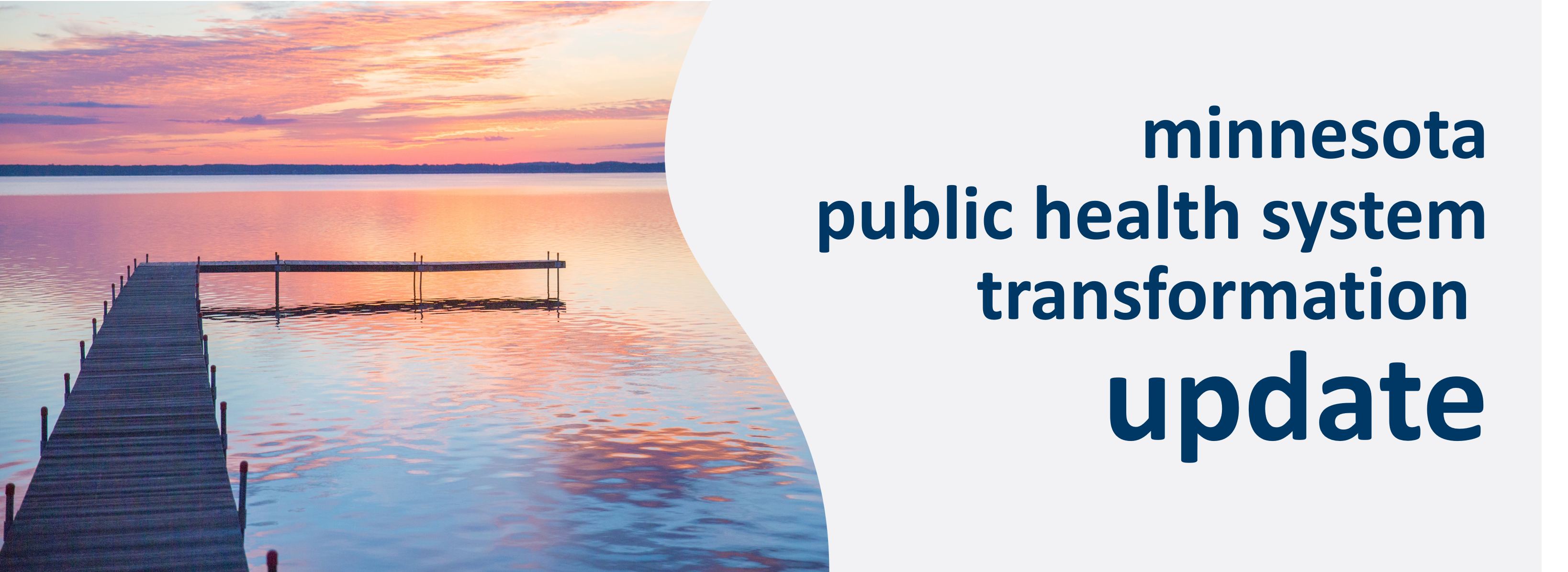Transforming Minnesota's Public Health System
- Home: System Transformation
- About This Work
- Framework of Foundational Responsibilities
- Definitions, Criteria, and Standards for Fulfillment
- Joint Leadership Team
- Minn. Infrastructure Fund and Local Innovation Projects
- Governance Groups and Communities of Practice
- Data Modernization
- Regional Data Models
- Tribal Public Health Capacity and Infrastructure
- FPHR Grant: Funding for Foundational Responsibilities
- Reports, Fact Sheets, Resources
- Newsletter
- Message Toolkit
Related Sites
Contact Info

Public Health System Transformation Update Newsletter
July 2024 | View all system transformation newsletters

Three local innovation projects making strides in population health data
A deeper dive into projects in the Twin Cities, southeastern Minnesota, and the Arrowhead that are helping Minnesota reconsider population health data work.
To make decisions that reflect local health concerns and local priorities, policymakers and community members need access to good, reliable, timely data about where they live.
Data experts in public health departments, health care systems, and community organizations collect and analyze a great deal of health data, and residents and policymakers are eager to use that data to do right by their communities. To make sure everyone in Minnesota has what they need to be healthy, we need to be able to collect, analyze, and share data on population health.
The status quo—the way we currently work when it comes to population health data—isn’t getting us where we need to go.
Organizations don’t or can’t share population health data, for many reasons: Electronic data systems may not be compatible to share data. Organizations may not be able to gather and combine individual data safely to reach population-level conclusions without compromising privacy or posing security concerns. If population-level data is available, organizations or agencies may not have staff to analyze it or help people understand it.
Across Minnesota, local public health agencies, the Minnesota Department of Health, health systems, and community organizations are partnering to learn how to share accurate, timely, reliable population health data, to help local leaders make decisions with local data, all while maintaining safety and privacy for patients and customers.
Innovation doesn’t happen without investment.
Each of the following local innovation projects are supported by Minnesota’s Public Health Infrastructure Fund, an annual allocation from the Minnesota Legislature to learn effective ways to make sure Minnesota’s public health system has the expertise, skills, and capabilities needed to meet today’s population health needs and anticipate tomorrow’s.
Read on for a deeper dive into how three projects based in the Twin Cities metro, southeastern Minnesota, and Arrowhead region are helping us learn how to leverage available data, consider scalability challenges across jurisdictions and regions, and share implications for similar initiatives:
- Twin Cities metro: Electronic health records can supplement local public health data collection
- Southeastern Minnesota: A region shares data, expertise, and partnership
- Arrowhead region: Building a strong foundation for data-informed planning, communications, and decision-making
